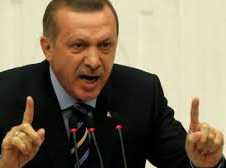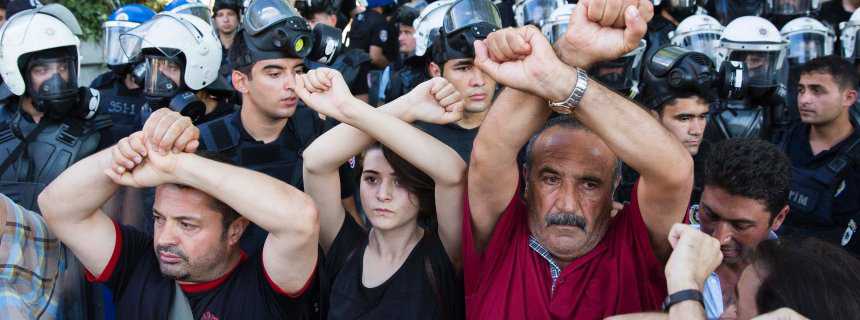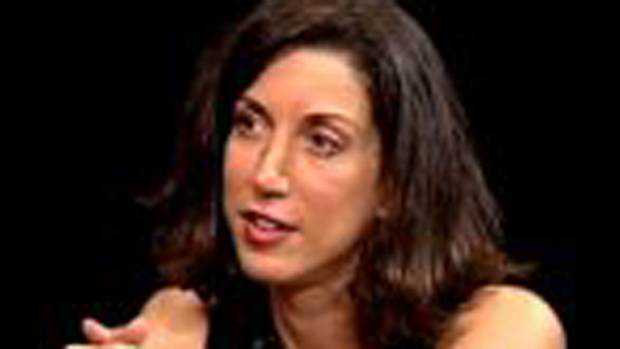Tayfun Kahraman met the prime minister five weeks ago, but now he is sitting in a hotel in Gaziantep in southeast Turkey, feeling distraught. The city is 1,150 kilometers (715 miles) from Istanbul, but less than 100 kilometers from the Syrian border. Kahraman is an urban planner and an official with the historic preservation division of the Turkish Ministry of Culture. Until recently, the 32-year-old was in Istanbul, where he led the protests against a development project in Gezi Park, which grew into mass demonstrations against the government in early June. Now he has been transferred to this provincial city as a punishment, he says. The official explanation is that there is a personnel shortage in the southeast.
“In Istanbul, my friends are being arrested and chased through the narrow streets with tear gas,” says Kahraman. “And I’m stuck here.” But he risks losing his job if he objects to the transfer. He is also receiving death threats, probably from supporters of Prime Minister Recep Tayyip Erdogan. He scrolls through the emails on his Blackberry, which include hate-filled Twitter messages. One person wrote: “We want to see you hanging on Taksim Square.” In Istanbul, he didn’t go home for weeks. He changed hotels four times, or slept in offices and friends’ apartments — when he could sleep at all.Until recently, Kahraman headed the conferences of a group called Taksim Solidarity, wrote press releases and was part of a group of protest leaders invited to speak with Prime Minister Erdogan in June. He also did the preparatory work for an expert report on which an Istanbul court based its decision to declare the construction project in Gezi Park illegal three weeks ago.
A ‘Retaliation Campaign’
The demolition of the park in downtown Istanbul was only the initial cause of the protests, which have continued and are now directed against the government. The protesters’ numbers have dwindled from the hundreds of thousands who had been attending the mass protests, though. Many are exhausted, but many are also afraid.
Largely unnoticed by the public, a big cleanup has begun, in which those who opposed Prime Minister Erdogan and his administration in recent weeks are now being punished. Activists are being locked up, journalists bullied and demonstrators persecuted. The Turkish parliament has deprived the chamber of architects and engineers of its voice in urban planning projects. The Turkish education ministry has ordered schools to provide it with the names of all teachers who took part in the protests, who could now face adverse consequences. “Erdogan is engaged in a retaliation campaign against his critics,” says opposition politician Ayse Danisoglu. “And he will stop at nothing to get his way.”
According to Turkish human rights organizations, the police have arrested at least 3,000 people, including children. Although some have been released, no one knows how many are still in prison.
Those arrested were primarily the leaders: activists with Taksim Solidarity, fans of the Besiktas football club, who have played a significant role in the protests, and members of opposition parties. But some people who were only marginally involved were also arrested. Most are accused of demonstrating without permits or damaging government property. Last week, security forces also raided dormitories in Istanbul and arrested dozens of students.
Locked Up for No Reason
Many, like Umut Akgül, are in prison without knowing why. A business student, Akgül had come to Istanbul from Eskisehir in northwestern Turkey to visit his parents. The family drove into the downtown area on July 6 to take part in a peaceful rally on Taksim Square, which has become the main site for protests there. As in the preceding weeks, the police used water cannons and tear gas against the protesters. Akgül fled into a building entrance, while his parents found shelter in a café. From there, Ali Akgül saw the police taking away his son. He rushed up to the officers and shouted: “That’s my boy!” But the police pushed him away. Others were also arrested, including a street vendor who was selling flags.
Akgül was taken to the police station, together with several dozen other protesters, while his parents waited all night in vain outside the police headquarters. Their son was arraigned the next day and sent to a prison in the Bayrampaa neighborhood, where he now shares a cell with murderers and rapists. His parents, who were only permitted to visit him once, say that he told them the other prisoners beat him and forced him to scrub the floor.
“No one in this country is safe anymore,” says his mother Gül Akgül. The television set in her living room is on all the time now, with images of the protests flickering across the screen. The parents are both real estate agents, but they haven’t worked since their son was arrested. They have hired an attorney, but it is still unclear what the charges against Umut Akgül are and when his trial could begin.
The parents say that their son was not active in any political group and had never attended a demonstration before. In the worst case he, like other Gezi demonstrators, could be indicted under the Turkish anti-terrorism law, known as Act Nr. 3713, on suspicion of founding a terrorist organization to overthrow the government. If convicted, he could face life in prison. Since 2005, when the government significantly expanded the anti-terrorism law, a number of Kurds, journalists, attorneys and mayors have been in prison on terrorism charges, with no prospect of a fair trail.
The arraignment judge based his decision to have Akgül detained on a surveillance video that allegedly shows the student attacking a police officer. But the person on the video is wearing a sweater, whereas Akgül was wearing a T-shirt on that day.
“There is no justice in Turkey,” says his father. “We will take our case to the European Court of Justice, if necessary.”
Police Brutality and Intimidation
When Erdogan became prime minister 10 years ago, he promised more democracy and constitutionality, and to put an end to the persecution of political opponents and police repression. But it now appears that Erdogan has adopted the methods of his predecessors. Emma Sinclair-Webb of Human Rights Watch criticizes the massive curtailing of basic rights in Turkey, saying that the government is doing nothing to investigate the excessive violence of recent weeks. On the contrary, she says, the police continue to treat peaceful demonstrators with brutality.
The week before last, a young demonstrator died in Antakya in southern Turkey. Eyewitnesses say that police officers beat him to death. He is the fifth fatality since the beginning of the Gezi protests. Close to 8,000 people have been injured, including 111 photographers and journalists who, according to the Istanbul Photography Foundation, were victims of police brutality.
Turkish journalists have suffered from repression for years. No other country in the world has as many journalists behind bars. But it wasn’t until the Gezi protests that the public became aware of how limited freedom of speech actually is. Most media organizations sided with Erdogan, and journalists whose reporting on the unrest was too positive, in the government’s opinion, have lost their jobs. Some were even arrested.
For the first time, the policy of intimidation is also directed against foreign journalists. A cameraman with the Arab Al-Jazeera network was injured, and an Italian journalist was expelled from the country. Amberin Zaman, a correspondent with the British magazine The Economist, says that she has never experienced this level of violence against journalists in her career.
Spirit of Resistance Remains
Mehmet Kacmaz, a photographer with the Turkish Nar agency, believes that the public has been alarmed by the images of police brutality, and that police have targeted journalists and photographers to stop them from producing more images.
Kacmaz documented the protests from the beginning. He recounts cases of colleagues who were beaten up, had their pictures deleted, or their cameras seized or smashed on the ground. A friend’s foot was crushed by a gas shell. “They are trying to intimidate us,” says Kacmaz.
He almost lost his left eye when he and four colleagues were taking pictures near Taksim Square two weeks ago. The police had driven away the demonstrators with tear gas and rubber bullets. Kacmaz was standing on the side of the street, without a helmet or a mask. He raised his hands when the police approached him. There wasn’t a single demonstrator nearby, and yet a police officer fired a rubber bullet at Kacmaz’s face. The photographer heard the sound of the gun, and then there was blood streaming over his eye. His colleagues took him to the hospital. He was blind for three days and had to have stitches on his eyelid, but has since regained his sight.Conservative journalist Yigit Bulut is already firing up the Turks for a “war” and has said that he would “die for Erdogan.” Bulut claims that the German and British governments are behind the protests, and that they aim to weaken Turkey. “But the Turkish people will win this war.” Prime Minister Erdogan seems to share these views. He has since appointed Bulut to be his chief advisor.
But the government’s attempts to intimidate are only fueling a spirit of resistance among some people. Tayfun Kahraman, the activist who was transferred to Anatolia, has already found a new mission. A small group of environmentalists are protesting against plans to cut down the trees in a public park in Gaziantep. Kahraman paid them a visit, and offered to provide them with an expert report to file a complaint. Gezi is everywhere, even in Gaziantep.





